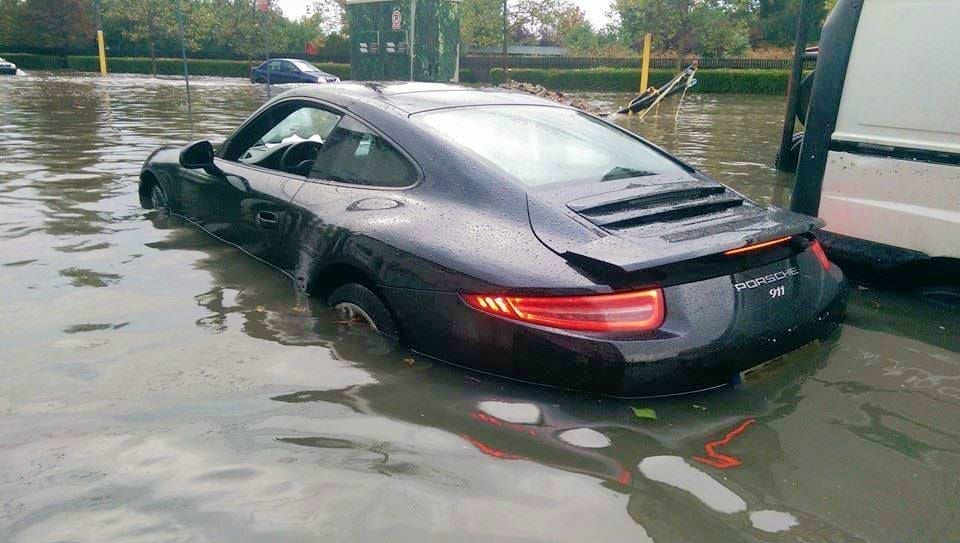
Can I Repair my Car After Flood Damage?
Associated Collision Center wants you to be safe and aware, this blog contains great info on Can I Repair my Car After Flood Damage.
Water can wreak havoc on a car—especially if that water comes from flooding.
If your car is exposed to flood damage, sometimes it can be repaired, though oftentimes those repairs may cost more than simply replacing the car. This is especially true if your car is flooded with saltwater. Saltwater damage can be extremely difficult to repair, and oftentimes it’s better to simply consider the car totaled. Freshwater damage is sometimes fixable, though it often depends on how high the water was, and which aspects of the cars were damaged.
Not sure where to start after a flood? Luckily, there are a few steps you can take to begin considering your options. Though, at the end of the day, you’ll likely need to bring in a trusted expert to help you determine the extent of the damage.
Check the level of water damage
When you first return to your car after a flood, you should see if you can tell how much of the car was submerged. You might be able to see an actual water line on your vehicle, or you may be able to tell by where the damage seems to be.
Flooding can damage a whole host of things in a vehicle, but the most concerning is damage to the engine or electronics, which can be difficult, if not impossible, to repair. If the water only rose to the level of the flooring of the car, it might be salvageable. However, you’ll need to take care to properly dry and clean all interior aspects, as well as ensure there’s no damage to the exterior that could promote rusting down the road.
Even if the damage appears to just be superficial, it’s still best to bring the car in to a professional. A trained expert can remove paneling from your vehicle to ensure it dries properly, inspect the engine and electrical systems, and potentially install new seating or carpeting if necessary.
Check the engine oil for water
One of the biggest concerns if your car is flooded is damage to the engine. An important note – never turn on your car’s engine until you know whether it’s been contaminated with water. Turning on an engine that’s been exposed to water can force water through the whole system, worsening damage.
One way to tell if water has compromised your engine is to check the engine oil with a dipstick. If the fluid level is unusually high, there’s likely water in it, since oil floats in water. If you find any evidence of water in the oil – or if you know that water rose to the level of the engine – it’s best to take it straight to your nearest repair ship for evaluation by a professional.
Determine if it’s worth repairing
At the end of the day, many flooded vehicles would cost more to repair than they would to replace. One of the most important assessments you can make is figuring out the worth of your car, then determining if the cost of repairs will exceed the value. Insurance companies can often help with this – though they may recommend simply considering the car totaled, especially if flooded with saltwater.
If your car is flooded, bring in an expert who has experience dealing with flood damage to make these determinations, and to run a full diagnostic test on your car’s functionality. Not only can flood damage be complicated – but it can also be dangerous if not diagnosed or repaired correctly.
Carwise.com can help you find a shop near you that can help you decide if you can fix your car after flood damage, or consider it totaled: carwise.com/auto-body-shops
What to know more? please visit our last month’s blog Acting on ADAS. A complete Blog can be found here.

Recent Comments